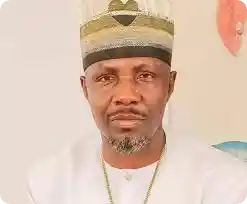Tompolo Biography: Family, Children, Net Worth, Warships, Tantita CEO Role and More
- Advertisement -
Government Oweizide Ekpemupolo, better known as Tompolo, is a prominent Niger Delta figure, known for his evolution from a feared militant leader to an influential businessman, spiritual leader, and advocate for regional development. With deep roots in the Ijaw ethnic nationality, Tompolo’s name is synonymous with activism, traditional leadership, and oil pipeline security.
This comprehensive biography explores key aspects of Tompolo’s life, including his family, children, net worth, business ventures, religious beliefs, and political influence in Nigeria’s oil-rich region.
Tompolo Biography: Early Life and Background
Tompolo was born on April 12, 1971, in Okerenkoko, a community in the oil-producing Gbaramatu Kingdom, located in Warri South-West Local Government Area of Delta State, Nigeria. He hails from the Okerenkoko Royal Family, giving him noble lineage within his community.
- Advertisement -
His parents, Thomas Ekpemupolo and Ewo Ekpemupolo, were well-respected members of the community. Tompolo is the only male child among seven siblings, a position that would later define his role in both family and public life.
Tompolo Education
Tompolo began his early education at Okepopo Primary School in Warri and later proceeded to Warri National Comprehensive College. However, driven by a sense of injustice and marginalization of his people in the Niger Delta, he abandoned formal education in 1993 to join the movement for resource control and environmental justice.
His decision to leave school would mark the beginning of a transformative journey that saw him become one of the most influential figures in the Niger Delta struggle.
- Advertisement -
Tompolo as a Militant Leader
In the early 2000s, Tompolo rose to national prominence as a key commander of the Movement for the Emancipation of the Niger Delta (MEND). The militant group emerged in response to decades of environmental degradation, poverty, and neglect of oil-producing communities by the Nigerian government and multinational corporations.

Tompolo’s leadership brought organization, strategic direction, and coordination to MEND’s activities. The group launched attacks on oil installations, kidnapped expatriates, and disrupted oil production in protest against systemic marginalization.
The Nigerian government considered Tompolo a threat to national security at the height of militancy. However, to the Niger Delta people, he was a freedom fighter and a symbol of resistance.
- Advertisement -
Tompolo and the Amnesty Program
In 2009, the Nigerian government under President Umaru Musa Yar’Adua introduced the Presidential Amnesty Program, aimed at ending hostilities in the Niger Delta. Tompolo played a critical role in the success of this initiative, leading thousands of fighters to disarm and embrace peace.
He accepted amnesty and withdrew from armed militancy. This marked a turning point in his life, as he shifted from militant activism to entrepreneurship and community advocacy.
CEO of Tantita Security Services
After the amnesty, Tompolo established Tantita Security Services Nigeria Limited, a private security firm specializing in pipeline surveillance and oil asset protection.
In 2022, the Federal Government of Nigeria awarded Tantita a multi-billion naira contract to secure oil pipelines in the Niger Delta region. The award reignited national discourse, as many questioned the government’s decision to engage a former militant. However, under Tompolo’s leadership, Tantita has successfully reduced oil theft and illegal bunkering activities.
Tantita’s operations are seen as vital in Nigeria’s efforts to restore its oil production capacity and reduce economic losses caused by crude oil theft.
- Advertisement -
Tompolo’s Net Worth – Forbes Style Estimate
While Tompolo does not publicly disclose his financial status, unofficial estimates place his net worth between $150 million and $300 million, largely due to his extensive business interests in security, maritime logistics, and oil surveillance.
Although not featured on Forbes’ official billionaire list, Tompolo is widely regarded as one of the wealthiest individuals in the Niger Delta. His war chest includes investments in marine security, logistics firms, oil servicing, and community development projects.
He owns a fleet of high-speed patrol boats, vessels, and other maritime assets used for securing Nigeria’s oil-rich creeks.
Tompolo’s Warship (The “Tompolo Navy”) and Maritime Assets
In line with his security operations, Tompolo has invested heavily in maritime assets. His company, Tantita Security Services, is reported to have acquired several high-tech patrol vessels, including decommissioned warships adapted for private security use.
Among the most talked-about acquisitions is a Norwegian-built naval vessel previously known as KNM Horten, which was decommissioned by the Norwegian Navy. This warship, now under Tantita’s fleet, serves to patrol Nigeria’s critical oil-producing waterways and combat illegal oil activities.
This fleet reinforces Tantita’s operational strength and underscores Tompolo’s influence in the oil security sector.
Tompolo Shrine (Egbesu Shrine) and Spiritual Role
Aside from business and politics, Tompolo is deeply rooted in traditional beliefs. He is the chief priest of the Egbesu shrine, a revered spiritual institution among the Ijaw people. Egbesu is considered the god of justice and war and is central to the cultural and spiritual identity of the Niger Delta.
His shrine in the creeks was a spiritual hub for militants, where they performed rituals for protection before battles. Some claim Egbesu gave them supernatural powers against bullets.
Tompolo’s shrine in Oporoza, Delta State, also serves as a religious and cultural center. It is where rituals, traditional meetings, and consultations take place. The shrine was once raided by security forces during a manhunt for Tompolo, but it has since remained a symbol of his spiritual authority.
His role as a spiritual leader further elevates his status among his people, who see him as a custodian of Ijaw heritage and a defender of their ancestral rights.
Tompolo Wife and Children
Tompolo is known to be a private individual when it comes to his personal life, but he is married to Victoria Ekpemupolo, a native of the Niger Delta region.
The union has been blessed with children, and although full details about his children are largely kept from the public eye, it is known that he has both sons and daughters.
Tompolo Family
Tompolo keeps his family life private, but here’s what is known:
-
Father: A local chief in Okerenkoko
-
Mother: A market trader who influenced his early life
-
Siblings: He has several brothers, some of whom have been involved in his security operations
Also Read : Biography of Bayo Bashir Ojulari: Group Chief Executive Officer of NNPC Limited
Tompolo Children
Tompolo is believed to have multiple children, though he rarely discusses them publicly. His family maintains a low profile due to security concerns.
Tompolo Daughter
One of his daughters made headlines when she had a lavish wedding in 2022, showcasing Tompolo’s wealth and influence. The event was attended by high-profile politicians and ex-militant leaders.
Tompolo’s Daughter – Mary Ekpemupolo
One of Tompolo’s children, Mary Ekpemupolo, has gained public recognition, particularly in literary circles. She is the author of the book titled “Lost Innocence: A Journey Through Abuse and Deception,” which explores personal struggles, abuse, and triumph.
Mary’s emergence as an author signals a shift from her father’s militant legacy to intellectual and literary contributions to society.
Her debut has been widely praised, and she continues to inspire young women in the Niger Delta and beyond.
Religion and Belief System
Tompolo practices African Traditional Religion and is a firm believer in the spiritual powers of his ancestors. As the high priest of the Egbesu deity, he often engages in rituals, ancestral consultations, and spiritual warfare.
While he respects other religions, including Christianity and Islam, Tompolo has remained steadfast in preserving the traditional values and spiritual systems of the Ijaw people.
His religious stance often draws criticism from outside observers, but among his people, he is viewed as a spiritual icon.
Tompolo Ethnicity and Cultural Identity
Tompolo is of Ijaw ethnicity, one of the largest and most influential ethnic groups in southern Nigeria. The Ijaw are known for their deep connection to water, fishing, and cultural resilience.
He has used his platform to promote Ijaw rights, language, and traditional customs. His cultural heritage plays a central role in both his activism and spiritual responsibilities.
As a cultural custodian, Tompolo’s influence extends beyond politics to shaping the identity and unity of the Ijaw nation.
Age and Date of Birth
Government Ekpemupolo was born on April 12, 1971, making him 54 years old as of 2025. Despite numerous attempts by successive governments to silence or arrest him, Tompolo has survived, evolved, and grown stronger with age.
His journey from the creeks of Gbaramatu to the boardrooms of security corporations exemplifies a man who has continuously reinvented himself while staying true to his roots.
Final Thoughts
Tompolo remains a controversial yet undeniably powerful figure in Nigeria’s oil politics. From a militant rebel to a multi-millionaire entrepreneur and spiritual leader, his story is one of transformation, resistance, and relevance.
Despite criticism, Tompolo has continued to redefine leadership in the Niger Delta, blending traditional authority with business acumen and political strategy. His influence is felt across security, politics, religion, and community development.
As Nigeria grapples with challenges in the oil sector, figures like Tompolo will continue to play critical roles in shaping the nation’s energy future and regional stability.
- Advertisement -


